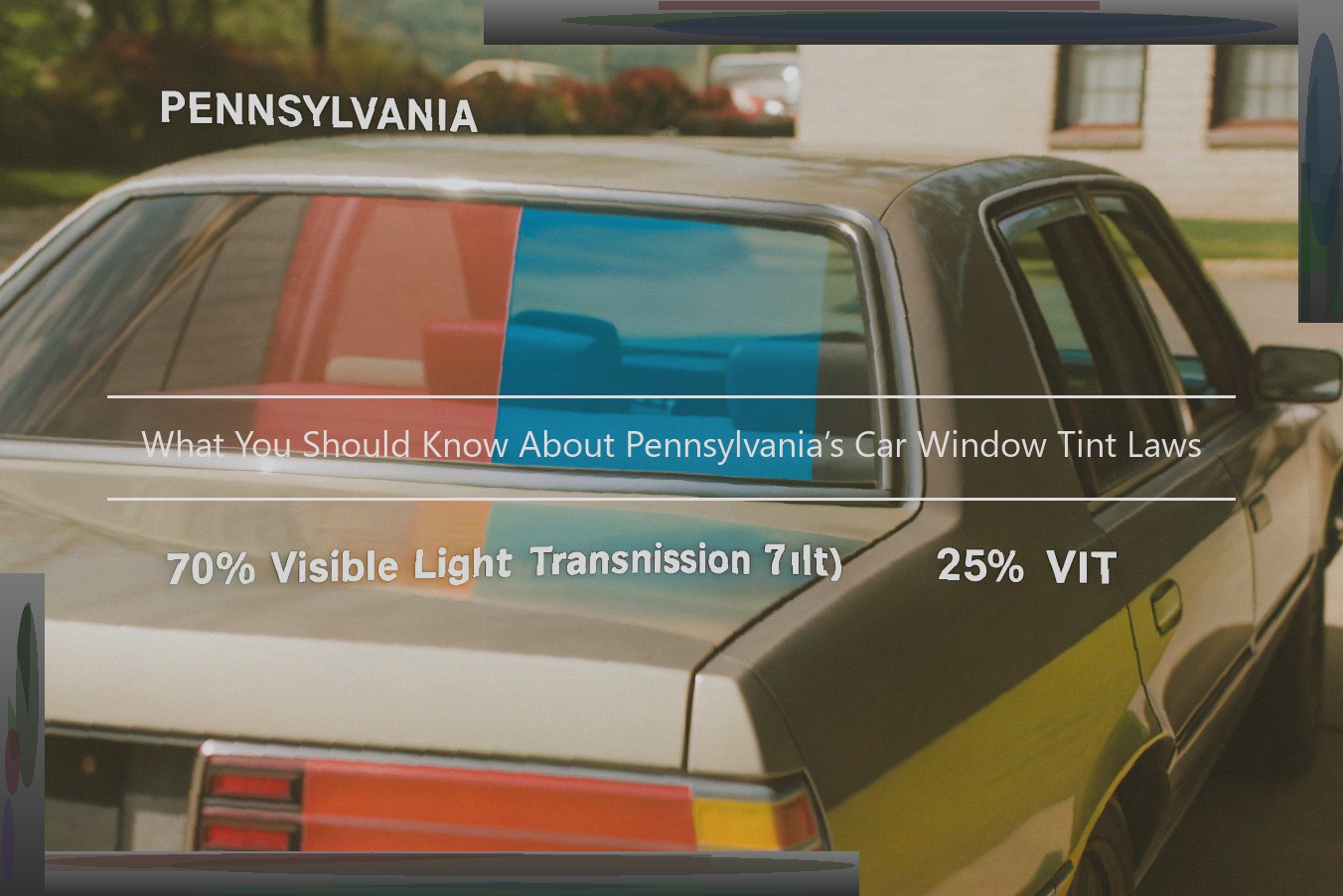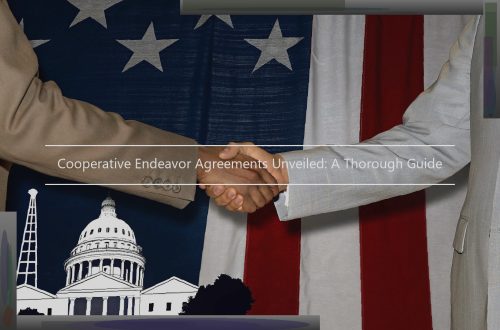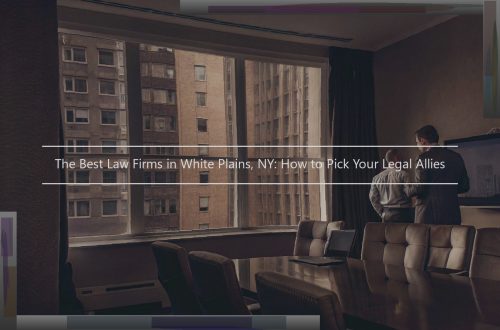What You Should Know About Pennsylvania’s Car Window Tint Laws
Pennsylvania’s Car Window Tint Laws Explained
Pennsylvania car window tint laws are fairly straightforward and easy to understand. The laws apply to tint, or shades, placed on the windshield, passenger front windows, front side windows and back side windows, as well as tints placed on rear windows and rear side windows. For most passenger vehicles, the tint can be no more than 70 percent, with the windshield responsible for no more than 25 percent visible light. Tinted driver-side and passenger-side windows can have as much as 70 percent light passing through. Any rear window can be tinted to 70 percent. Although the tinting must have a visible light transmission percentage that is easy to gauge, or understand, the tint should also conform to reflection or light-and-heat refining technologies, such as explained here – the tint should not be manufactured from materials or technologies that would reflect more than 20 percent of the sunlight incident to the vehicle’s windows. Since this law applies to vehicles, trucks, SUVs, vans and sedans, it is important to understand that the window tint laws also apply to the light tint applied to glass sunroofs. Although these tint requirements are relatively simple to understand, it is also important to consider where and under which situations the tint shall not be used. For example, there are restrictions on how tint can be used for certain professional drivers’ vehicles, including passenger buses, taxi cab and other vehicles that transport people for compensation. Tinted windows on cabs are to allow 40 percent of light to pass through, while other alterations, such as limousines, buses and other vehicles transporting passengers for hire , are to allow for 70 percent light transmission. Other vehicles used for hire, such as ambulances and police cruisers, are all subject to the same 70 percent light visibility rule and 20 percent light reflection rule as all other cars and trucks in the commonwealth without any other exceptions. Drivers and passengers will find the window tint always requires some type of specification, to ensure the law is observed. Most window tints and films have manufacturers stickers and stamps, visible on the window so police officers can quickly assess whether the tint is darker or more reflective than authorized by Pennsylvania law. There are two exemptions to Pennsylvania’s tint laws, allowing for a non-compliance notice, available from an authorized doctor, to have some tint on their windows that reduces visibility more than is authorized. To obtain this legal tint exemption, the motorist must write a note from an authorized physician into the Vehicle Registration. Upon request from law enforcement, this form can be presented to show the tint does not comply. Another common tint exemption is relief from being ticketed. This is only issued to drivers of vehicles registered in other states with permissible amounts of tint. Motorists are only allowed to drive the car in Pennsylvania the one day, and must leave the state on the second day. If a driver feels their vehicle was ticketed for excessive tint, they can believe it should be permissible because they are not Pennsylvania residents. When this type of citation is received, the driver may file for relief or seek the assistance of a lawyer.

Tint Darkness Allowed On Different Windows
For a standard passenger vehicle, tinted windows may be no darker than 70% VLT in the front windshield, with no more than 30% VLT on all other windows. In a multi-purpose vehicle, such as vans, pickup trucks, and SUVs, window tint may also be no darker than 70% VLT in the windshield, with no more than 50% VLT on all other windows. A windshield tint that’s darker than 70% VLT will not be permissible on any type of vehicle.
The Pennsylvania State Police routinely pull over other drivers for having windows tinted too dark. You may also receive a fix-it ticket for having tinted windows in violation of Pa. vehicle code 75 Pa.C.S. § 403 (f). Although the typical fine for tinted windows goes easy on the wallet, the inconvenience of being pulled over and the potential for other problems, such as false accusations of DUIs, is enough to keep most people from driving around with suspiciously dark windows.
Penalties for Violating the Window Tint Laws
If you choose to ignore the window tint laws in Pennsylvania, you could be in for a rough ride. Not only are there fines and penalties for non-compliance, but law enforcement agencies are under pressure from higher authorities to step up enforcement and crack down on offenders. With the number of officers cracking down on window tint regulation, you may find yourself pulled over and cited even if the tint appears to be a factory tint.
Failure to comply with window tint laws on your car, SUV, or pickup truck can result in a minimum fine of $25. Your vehicle may also be impounded until you have changes made to bring your windows into compliance. In fact, if you get caught repeatedly driving with window tint that doesn’t meet state requirements, you could end up with fines amounting to thousands of dollars over time. For those already struggling with the high costs of maintaining a car, these fines can be a serious financial setback.
For manufacturers and installers, there are significant penalties for violating the regulations above and beyond the maximum fines of $10,000 for each violation. Not only can they face harsh legal action and fines, but they also risk harming their reputation and losing clients due to being shut down for violating state laws for the manufacture and installation of window tint used in automobiles.
Window Tint Law Exemptions
The exemptions to the Pennsylvania car tint laws are relatively few but do exist. The most common exemption is for individuals who possess a medical condition that requires the use of darker window film. Applicants for this exemption must have a doctor’s order for tinted window treatment from a medical doctor licensed in the United States. Approval is given on a case-by-case basis.
A second exemption permits the use of darker window films for medical equipment that is conspicuously visible to an officer outside of a vehicle. This exemption does not apply if the purpose of a vehicle is to transport children.
A third exemption allows for the application of darker window films for historic or vintage vehicles , but only for those operated in full accordance with and under circumstances or conditions approved by law enforcement.
Finally, individuals who possess a permit for a specialty registration plate relating to defense veterans may be allowed to place tinted windows on their cars.
How to Comply with the Law
To ensure your vehicle meets Pennsylvania’s car tint laws, it is crucial to understand the permissible levels of tint on both the front and rear windows, as well as on the windshield. For windows in the front seat, the tint must be either non-reflective or reflective tinting that does not exceed a visible light transmission (VLT) of 70 percent. The rear windows have no restrictions for the tint percentage. The windshield is only permissible with tint applied above the AS-1 line, which is typically at the top of the manufacturers printed line that is found along the windshield’s upper edge when produced. Again, the windshield can only be tinted with non-reflective tint.
An easy way to ensure compliance with these statutes before having window tint applied is to get an idea of the tint by taking a sample of appropriately tinted windows and having professionals test the VLT percentage.
When it comes to window tinting for vehicles, the best policy is to abide by the law. If you have any questions, please make sure your tint service provider is familiar with the window tint requirements of the state of Pennsylvania to avoid fines and possible removal of tint.
Answers to Common Questions
Are there any special certification requirements to sell window tint in Pennsylvania?
Yes, all manufacturer’s window films (except clear) sold, and installed in the state of Pennsylvania must bear the following certification label, or Certificate of Compliance, to be used by an Authorized Pirelli Dealer, or L.O.V. Installer:
An installer cannot sell or install any automotive window film that does not bear a Certificate of Compliance.
Do all materials need to comply with the Pennsylvania window tint laws?
No. All window tint materials are subject to legal regulations, however, all window materials other than window tint are exempt and do not require specific restrictions or certifications. Examples of non-tint materials include window film with scratch protection, paint protection or tiles, or commercial grade filament, conductive or reflective material.
Does the manufacturer or person installing the tint have to carry a certificate for compliance?
No. All manufacturers must provide the end user with a Certificate of Compliance at the time of installation. Vinyl Labels are not acceptable. This certificate will contain all relevant information pertaining to that particular piece of window tint . In addition, the tint installer must maintain a separate record system including copies of all Certificates of Compliance issued to the end user, and an alphabetical filing system by the individual certificate number.
Does the Certificate of Compliance still apply to cars with factory tint?
Yes. Cars with a factory tint must still have a Certificate of Compliance affixed and readily available inside the vehicle.
What do I do if I have received a tint ticket?
You should take the corrective action necessary to comply with the law as soon as possible. Then you must apply for a waiver with the magistrate. Once a waiver is obtained, pay the fine or present the waiver to the proper district justice office.
If I have been ticketed for having illegal window tint, can I take my car to any auto-tinting business?
No. Your car must be taken to a state certified, Approved Installer. The installer will be able to properly remove the tinted window material and replace it with legal materials. He will then reissue a new Certificate of Compliance to your state inspection station. The station will replace the sticker with a new one reflecting the change in status of your windows passing the inspection requirements.





